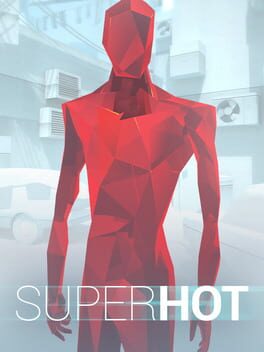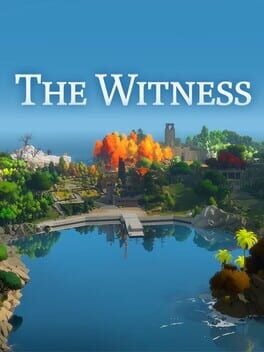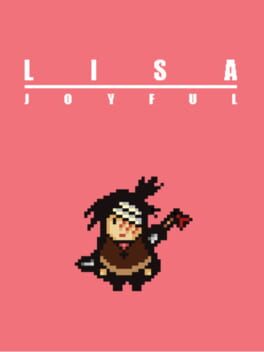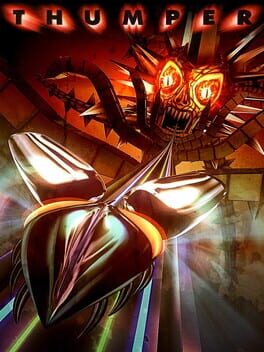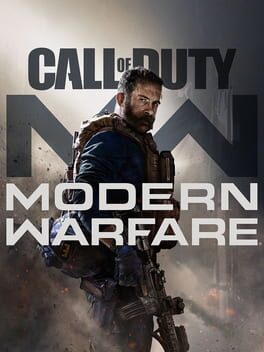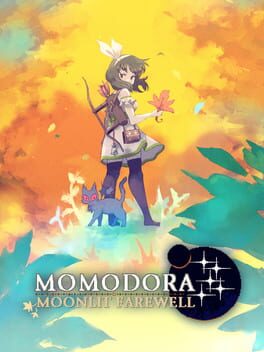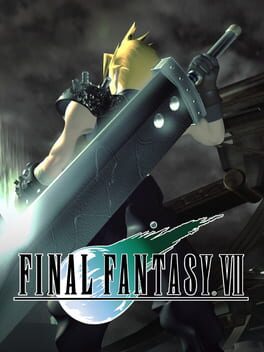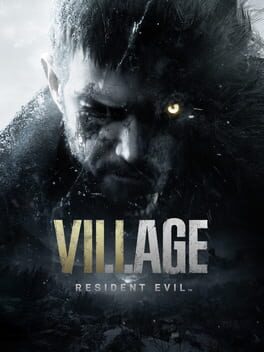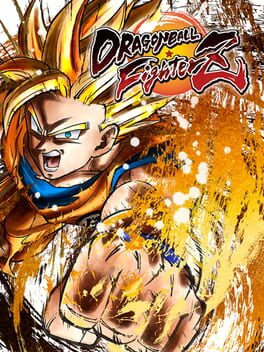Dizzy
2019
2003
An ambiguous story that flips a lot of the hero-dependent narratives of the period on their head. I get the whole Yoko Taro story structure thing has been done to death now that we live in a post-Nier world, but it's pretty fresh here. I dig this.
Playing this game will kind of make you want to die, but honestly it's pretty disorienting in the most captivating way possible.
I see a lot of people form the conclusion that this game is "bad on purpose" but I sort of resent the implication of that. I feel like this game was good on purpose. Often games are reduced to being either "fun" or "not fun" and that's so boring. Let a game make you feel like shit once or twice, you'll be better for it (and cooler, more badass etc. etc.)
Playing this game will kind of make you want to die, but honestly it's pretty disorienting in the most captivating way possible.
I see a lot of people form the conclusion that this game is "bad on purpose" but I sort of resent the implication of that. I feel like this game was good on purpose. Often games are reduced to being either "fun" or "not fun" and that's so boring. Let a game make you feel like shit once or twice, you'll be better for it (and cooler, more badass etc. etc.)
2016
2016
2015
2016
2022
Quite possibly one of the prettiest games of a modern era. Puts most other attempts at translating classic survival horror structures to shame.
Somehow manages to also bring a fresh and exciting narrative to the table. It's carried by its presentation, but if you're won over by the visuals the story will likely grab you alongside it.
Lacks some form of subtlety in its aesthetic, which is to say that it doesn't bother to hide where its inspiration comes from. Wish more games were like this. Makes it feel more personal in an odd way.
Soundtrack is pretty good too.
Yah, anyway, play this or you suck at video games and I rebuke you
Somehow manages to also bring a fresh and exciting narrative to the table. It's carried by its presentation, but if you're won over by the visuals the story will likely grab you alongside it.
Lacks some form of subtlety in its aesthetic, which is to say that it doesn't bother to hide where its inspiration comes from. Wish more games were like this. Makes it feel more personal in an odd way.
Soundtrack is pretty good too.
Yah, anyway, play this or you suck at video games and I rebuke you
2024
2012
For what appears to be the last game in the series, I was surprised to see how moved I was from just seeing how these games have evolved over time. It's odd watching something you played because it was free (when you were, like, ten) turn into this. I think growing up alongside something makes you susceptible to fond feelings for it, and that’s the case here. Returning to Momodora was a really great time for me.
It goes without saying that this is one of the prettiest games of the year by a mile, at least at the time of writing this review. I think that’s become something Momodora is known for, and it’s well deserved. Every environment has a certain character to it that I can’t quite put to words well. I enjoy that sort of thing.
I’m fond of the gameplay changes made. I found it less difficult than Reverie, but that’s not necessarily a bad thing. The sigils felt fun to find, and to some extent I experimented with all of them by the end of the game’s runtime. The movement isn’t the most pristine thing, but it’s generally fun to explore each environment, and I never felt like I was too slow to be having fun doing so.
While it lacks the depth of other examples within the medium, the narrative isn’t necessarily boring either. While it’s aided by the visuals, I did feel connected to what was going on in the world by the end of things. This could be a biproduct of playing every game in the series, and I could easily see someone playing this game and shrugging off the story entirely, but it resonated with me. To avoid spoilers, I’ll cap this by cautioning you to not go into this one expecting the same bleak world as Reverie. This one is more about hope than anything else.
Anyway, it’s a damn good game. With games such as this one the worst part is that, by the end of it, I don’t have anyone to really talk about it with. If you read this review, play the game, give it five stars, and then discuss it with me. That’s your mission. If you’ve already played it, you have permission to be my friend.
It goes without saying that this is one of the prettiest games of the year by a mile, at least at the time of writing this review. I think that’s become something Momodora is known for, and it’s well deserved. Every environment has a certain character to it that I can’t quite put to words well. I enjoy that sort of thing.
I’m fond of the gameplay changes made. I found it less difficult than Reverie, but that’s not necessarily a bad thing. The sigils felt fun to find, and to some extent I experimented with all of them by the end of the game’s runtime. The movement isn’t the most pristine thing, but it’s generally fun to explore each environment, and I never felt like I was too slow to be having fun doing so.
While it lacks the depth of other examples within the medium, the narrative isn’t necessarily boring either. While it’s aided by the visuals, I did feel connected to what was going on in the world by the end of things. This could be a biproduct of playing every game in the series, and I could easily see someone playing this game and shrugging off the story entirely, but it resonated with me. To avoid spoilers, I’ll cap this by cautioning you to not go into this one expecting the same bleak world as Reverie. This one is more about hope than anything else.
Anyway, it’s a damn good game. With games such as this one the worst part is that, by the end of it, I don’t have anyone to really talk about it with. If you read this review, play the game, give it five stars, and then discuss it with me. That’s your mission. If you’ve already played it, you have permission to be my friend.
2012
This review contains spoilers
I’ve played through Final Fantasy VII twice now, and I’ve given it a perfect score both times. This surprised me, as I can be a bit apprehensive about games heralded as the best in the medium. Often I find these claims only lead to me being let down. I also tend to lower my scores upon replay, as I like to have an awkward obsession with new things then realize the duller aspects once I fall out of love with them (see my shift in opinion on The Legend of Zelda: Breath of the Wild). To top all this off, my opinions on RPG design are more critical than most. I hate feeling lost and without direction in games, and I feel like this flaw is most common within that spectrum of game. With all this considered, Final Fantasy VII truly is timeless, as it turns out.
I’ll start by noting an odd charm carried by the narrative. I would hesitate to call it compelling, but it does have a strange way of grabbing my attention on each playthrough. The overarching story isn’t anything insanely striking. For its legacy to be so defined by its antagonist, Sephiroth is spectacular in every aspect outside of his writing, otherwise feeling stale and under utilized. With all that said, it has a unique feeling to it and combined with the rudimentary (but loveable) visuals, I did end up being interested in what was happening in it. To carry a story on the back of characters and aesthetics alone is notable for any game, let alone a game going for something as new and daring as Final Fantasy VII obviously is. If you’re apprehensive about it, I would recommend jumping into it, taking it as it is, and understand that it doesn’t really expect anything more than your attention. There isn’t much to read into or rip apart with it, but it’s likely to earn a smile (or maybe even some brief pangs of sadness) by the end of it. Somebody clearly cared about the story, and often that’s enough to earn my respect and at least a passing grade from me.
At first glance, I was also intimidated by the idea of the Materia system. It seemed overwhelming, and I disliked the idea of managing a set of complex abilities and individually piecing together which had an edge over others, then investing time and effort into leveling those abilities up. I initially wondered what would happen if I found that a Materia I had invested time into was losing its edge in the late game. What then? Would I be expected to grind a new one up, sacrificing my time and effort for something I would have had no idea I was doing wrong? I was completely off, and I really should get over developing such harsh preconceptions. I found by the end that experimenting with new abilities and playing around with all the Materia felt natural and fun. I made mistakes with my setups and strategies, but never felt I was being cheated by the game for not arbitrarily selecting the Materia it wanted me to at any one point. Failure meant learning more about the abilities, which was exciting and kept the combat interesting to the very last fight. This is a pretty landmark victory in design, and certainly knocked me on my ass. I have lots of praise to sing for this system. Have fun with it, it’s great.
The visuals are inspired and a lot of thought went into bringing this game to life. It really pops, even to this day, and provides a beautiful glimpse into how creative this industry once had to be in order to conquer the mountain of problems that came with three dimensions. Alongside this, the soundtrack is phenomenal, and seriously helps the game in conveying what it wants to. The text boxes come with no audio or voice acting (obviously) so the soundtrack becomes imperative in characterizing the interactions between the characters and their environment. This really helped my connection to the game, so the degree of success it found here is one I have a great deal of admiration for.
I suppose at the end of it all Final Fantasy VII wins on its creativity above all else. With this game’s remake receiving the reception it did, I’ve been doing a lot of thinking about the current industry trend, and my connection to this game is partially influenced by this. At the end of it all I worry about losing what’s exemplified in this game's design to the ever-present ideals of optimization and improvement. This game isn’t going to win any modernity contests anytime soon, that much is clear, but I still have a strong appreciation for how this game handled itself. That isn’t a slight against Final Fantasy VII Remake or any of its prospective sequels, of which I judge according to their own merit, rather it’s my own worry that those games are intended to replace the original in some way. I don’t think translating art to be more modern is an improvement over the original, and that line of thinking might present a danger to the philosophies that attracted me to games as an artistic medium for expression in the first place..
But I’m also aging like anyone else, and past a certain level of aging you just start liking old shit. Whoops. It happened to me too.
Also hey sorry for the review, next one will be a sentence long again don’t worry.
I’ll start by noting an odd charm carried by the narrative. I would hesitate to call it compelling, but it does have a strange way of grabbing my attention on each playthrough. The overarching story isn’t anything insanely striking. For its legacy to be so defined by its antagonist, Sephiroth is spectacular in every aspect outside of his writing, otherwise feeling stale and under utilized. With all that said, it has a unique feeling to it and combined with the rudimentary (but loveable) visuals, I did end up being interested in what was happening in it. To carry a story on the back of characters and aesthetics alone is notable for any game, let alone a game going for something as new and daring as Final Fantasy VII obviously is. If you’re apprehensive about it, I would recommend jumping into it, taking it as it is, and understand that it doesn’t really expect anything more than your attention. There isn’t much to read into or rip apart with it, but it’s likely to earn a smile (or maybe even some brief pangs of sadness) by the end of it. Somebody clearly cared about the story, and often that’s enough to earn my respect and at least a passing grade from me.
At first glance, I was also intimidated by the idea of the Materia system. It seemed overwhelming, and I disliked the idea of managing a set of complex abilities and individually piecing together which had an edge over others, then investing time and effort into leveling those abilities up. I initially wondered what would happen if I found that a Materia I had invested time into was losing its edge in the late game. What then? Would I be expected to grind a new one up, sacrificing my time and effort for something I would have had no idea I was doing wrong? I was completely off, and I really should get over developing such harsh preconceptions. I found by the end that experimenting with new abilities and playing around with all the Materia felt natural and fun. I made mistakes with my setups and strategies, but never felt I was being cheated by the game for not arbitrarily selecting the Materia it wanted me to at any one point. Failure meant learning more about the abilities, which was exciting and kept the combat interesting to the very last fight. This is a pretty landmark victory in design, and certainly knocked me on my ass. I have lots of praise to sing for this system. Have fun with it, it’s great.
The visuals are inspired and a lot of thought went into bringing this game to life. It really pops, even to this day, and provides a beautiful glimpse into how creative this industry once had to be in order to conquer the mountain of problems that came with three dimensions. Alongside this, the soundtrack is phenomenal, and seriously helps the game in conveying what it wants to. The text boxes come with no audio or voice acting (obviously) so the soundtrack becomes imperative in characterizing the interactions between the characters and their environment. This really helped my connection to the game, so the degree of success it found here is one I have a great deal of admiration for.
I suppose at the end of it all Final Fantasy VII wins on its creativity above all else. With this game’s remake receiving the reception it did, I’ve been doing a lot of thinking about the current industry trend, and my connection to this game is partially influenced by this. At the end of it all I worry about losing what’s exemplified in this game's design to the ever-present ideals of optimization and improvement. This game isn’t going to win any modernity contests anytime soon, that much is clear, but I still have a strong appreciation for how this game handled itself. That isn’t a slight against Final Fantasy VII Remake or any of its prospective sequels, of which I judge according to their own merit, rather it’s my own worry that those games are intended to replace the original in some way. I don’t think translating art to be more modern is an improvement over the original, and that line of thinking might present a danger to the philosophies that attracted me to games as an artistic medium for expression in the first place..
But I’m also aging like anyone else, and past a certain level of aging you just start liking old shit. Whoops. It happened to me too.
Also hey sorry for the review, next one will be a sentence long again don’t worry.
2018


